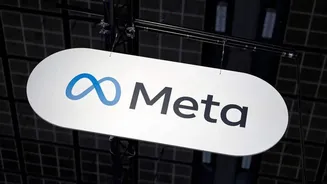What is SNAP?
The Supplemental Nutrition Assistance Program (SNAP), formerly known as the Food Stamp Program, is a federal initiative designed to combat hunger and improve
the health of low-income individuals and families. SNAP provides financial assistance in the form of an Electronic Benefit Transfer (EBT) card. This card functions like a debit card and can be used to purchase eligible food items at authorized retail stores. SNAP benefits are crucial for millions of Americans, ensuring they have access to nutritious food. The program is administered by the United States Department of Agriculture (USDA) and operates in every state, the District of Columbia, Guam, and the U.S. Virgin Islands. SNAP aims to alleviate food insecurity by providing a safety net for those struggling to afford groceries, thereby improving health and well-being.
Eligibility Requirements
Eligibility for SNAP is determined by several factors, mainly focusing on income and resources. Each state has its own specific guidelines, but federal regulations provide a framework. Generally, to qualify, applicants must meet specific gross income limits, which vary depending on household size. These income limits are usually set at or below 130% of the poverty line. Additionally, applicants’ assets, such as savings and checking accounts, may be considered. Certain households, such as those with elderly or disabled members, may have different asset limits. The application process typically involves submitting an application form, providing proof of income, and verifying other relevant information. Work requirements might also apply for some able-bodied adults without dependents, who might need to participate in work-related activities to maintain eligibility. For detailed guidelines and specific requirements, it's essential to check the official SNAP website or contact the relevant state agency.
Applying for SNAP
Applying for SNAP benefits usually involves several steps. The initial step is to gather necessary documentation, which may include proof of income (pay stubs, tax returns), identity, and residency. Many states provide online application portals, making it convenient to apply from home. Alternatively, paper applications are available, which can be downloaded from state websites or obtained from local SNAP offices. Once the application is submitted, it is reviewed by the state agency. This process may involve an interview, either in person or over the phone, to verify the information provided. Processing times can vary, but the goal is to provide benefits quickly to those in need. After approval, eligible applicants receive an EBT card. This card is reloaded monthly with benefits, enabling them to purchase food items at authorized stores. It's crucial to report any changes in income or household circumstances promptly to the SNAP office to maintain eligibility.
Using SNAP Benefits
Using SNAP benefits is straightforward. Once an EBT card is received, it can be used like a debit card at authorized retail locations. These stores are easily identified by signs indicating they accept SNAP benefits. Eligible food items include fruits, vegetables, meat, poultry, fish, dairy products, and breads. However, some items are not covered, such as alcohol, tobacco, and non-food items like pet food or household supplies. At the checkout, the card is swiped, and the user enters a PIN to authorize the transaction. The amount of the purchase is deducted from the SNAP balance. Remaining balances can be checked online, through a mobile app, or by calling a customer service number. It's important to keep track of spending and ensure that benefits are used responsibly to maximize food purchasing power.
SNAP Program Changes
Changes to SNAP are often debated and can impact millions of beneficiaries. Legislation at the federal level can influence eligibility requirements, benefit amounts, and work requirements. State-level policies also play a significant role, as they have the flexibility to implement certain aspects of the program. Over time, SNAP benefits have adjusted to reflect changes in the cost of food, economic conditions, and the needs of the population. These adjustments are designed to ensure that the program remains responsive to the needs of the people it serves. Policy modifications can affect various facets of SNAP, including income limits, asset tests, and the types of food that can be purchased. Staying informed about potential changes is crucial for beneficiaries to understand how the program may affect them and to ensure they remain in compliance with the rules.
Avoiding Fraud and Abuse
The SNAP program has measures to prevent fraud and misuse of benefits. Individuals are strictly prohibited from misrepresenting their information, such as income or household size, to obtain benefits improperly. Using someone else's EBT card without permission or selling SNAP benefits for cash or other goods is illegal. The USDA, along with state agencies, investigates cases of suspected fraud. Penalties for committing fraud can include disqualification from the program, fines, and even prosecution. SNAP benefits are intended to help people in need afford food, and protecting the integrity of the program is essential for it to operate effectively. SNAP users should familiarize themselves with program rules and guidelines, and report any suspicious activities to the appropriate authorities to ensure the program remains available for those who genuinely need assistance.
SNAP and Food Security
SNAP plays a critical role in addressing food insecurity across the United States. By providing financial assistance to low-income individuals and families, the program enables them to purchase nutritious food, reducing the risk of hunger. Food insecurity is a significant public health issue, associated with poor health outcomes, developmental delays in children, and increased stress and anxiety. SNAP is a crucial component of the social safety net, providing a vital resource for millions. Studies show that SNAP helps people afford food, reduces poverty, and supports economic activity by boosting spending at local retailers. By making food more accessible, SNAP empowers individuals and families to maintain their health and well-being, contributing to the overall health of communities.



















